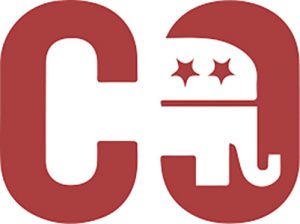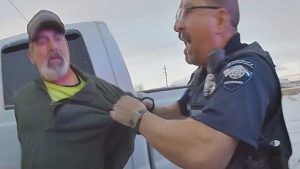Springer High School teacher selected to go to central Asia on month-long curriculum building trip
by Sherry Goodyear
SPRINGER — Most people look forward to summer because of the warm weather and fun times it usually brings, but those aren’t the only reasons Springer High School English teacher, Kristopher Otto is excited about this coming summer. Otto, who began working for Springer Municipal Schools in 2004, recently learned he was one of six high school teachers from rural New Mexico and Arizona who has been selected to attend a four-week curriculum-building trip to Kazakstan and Uzbekistan this summer. Once a part of the Soviet Union, both of these countries gained their independence after the Soviet Union was dissolved in 1991.
New Mexico Highlands University along with the University of Arizona Russian Department and Center for Middle Eastern Studies received a grant from the Fulbright-Hays Group Projects Abroad Curriculum Development program to make this trip possible for the lucky winners. In addition to the six high school educators, there will also be six college educators going. Most of the costs of the trip including air-travel are covered by the grant.
Otto and his fellow educators will be traveling to Kazakstan for 19 days and Uzbekistan for nine days from early June through early July 2018.
According to the University of Arizona website, “The Fulbright-Hays GPA is designed to be academic, experimental, and practical. Participants will learn about the literature, history, geography, culture, music, and art/ architecture of Central Asia from Caffee, local experts, and museum/site visits.” Otto and his fellow recipients will also receive forty hours of language instruction, thirty in Russian, ten in Kazakh. Otto himself says, “The history of central Asia is engaging, and not often discussed in detail in high school or college curriculums aside from common luminaries; Tamerlane, Genghis Kahn, Alexander the Great. The proposed itinerary [for the trip] is full of astounding activities and sights such as Karlag (Soviet gulag) Museum, attending the opera Abai at the Astana Opera House, a visit with the Turgen village teachers, and many trips to modern cultural and ancient historic sites.”
Of course, the main purpose for sending educators to far flung places like Kazakstan and Uzbekistan is so they can bring what they have learned back to the classroom and share it with their students. Otto says it is important for students from Springer to know that, “At one time in our history most everyone was from the country, few lived in the city.” He goes on to say, “Our rural students must realize that – no matter where they are from, where they live, no matter how small their high schools are, they are citizens of the world, and they can make it anywhere. They can make it at any university or college, in any training program, in any city or country in any job that they are willing to work at.” Otto also looks forward to sharing what he has learned with community members. He calls being able to share his experiences with students and community members, “A wonderful gift.”
Though this is Otto’s first time receiving a Fulbright-Hays scholarship, it isn’t his first time abroad for educational edification. In 2006, Otto was one of roughly 200 individuals selected from around 8,000 applicants to travel to Japan for an international study trip which was sponsored by the International Institute of Education and The Japan Fulbright Memorial Fund (JFMF) Teacher Program. Otto says that much of the time he spent in Japan was spent, “Dispelling stereotypical information that the Japanese students and public hold about Americans, and vice versa. Through my travels, it is obvious that people are people no matter their nationality; they love their families, want their families’ health and happiness, are proud of their heritage and traditions, and are kind and understanding.”
Otto sees his purpose in visiting Kazakstan and Uzbekistan to be similar to what it was when he visited Japan. He says, “I want to dispel what the media has taught the Kazakh or Uzbekistani person about the way Americans live day to day. I want them to understand that whatever sound bite or news blurb from our political leaders is not necessarily the feelings or thoughts of many, most, or some Americans. I want to be able to be a positive representative for both cultures, to both cultures.”




